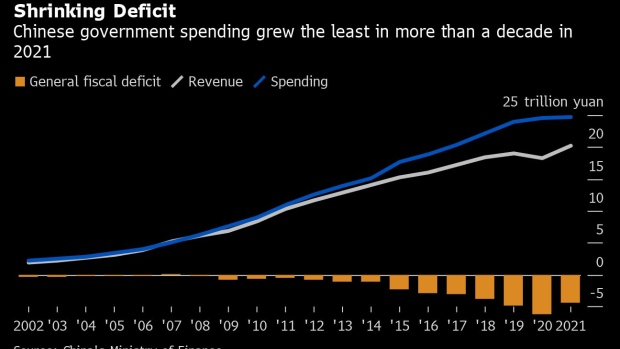Saudi Arabia Is Making a High-Risk $1 Trillion Bet on Tourism
The kingdom must overcome a conservative image and concern about human rights. Visit the desert oasis town of AlUla to understand the challenge.
Latest Videos
The information you requested is not available at this time, please check back again soon.
The kingdom must overcome a conservative image and concern about human rights. Visit the desert oasis town of AlUla to understand the challenge.

Jury selection was completed Friday for Donald Trump’s first criminal trial, setting the stage for opening arguments Monday in a New York case accusing the former president of falsifying business records to conceal a sex scandal before the 2016 election.

Higher-than-expected interest rates amid persistent inflation are perceived as the biggest threat to financial stability among market participants and observers, according to the Federal Reserve.

Fifth Third Bancorp jumped the most in four months, leading bank stocks higher, with Chief Executive Officer Tim Spence predicting that income from lending has bottomed out.

China’s securities regulator said it will encourage the nation’s companies to list in Hong Kong as it unveiled a package of measures to bolster the city’s position as an international financial hub.
Jan 25, 2022
, Bloomberg News

(Bloomberg) -- China’s government spending rose at the slowest pace in nearly two decades last year, suggesting limited fiscal support for an economy that’s lost momentum sharply in recent months.
General fiscal expenditure came in at 24.63 trillion yuan ($3.9 trillion), up 0.3% from the previous year, Vice Finance Minister Xu Hongcai told reporters at a Tuesday briefing. That was the weakest pace since 2003, according to Bloomberg calculations based on the ministry’s data.
At the same time, the government raked in 20.25 trillion yuan of general fiscal revenue last year, up 10.7% from the previous year, Xu said. That left a deficit of 4.4 trillion yuan, the smallest since 2018, Bloomberg calculations show.
Revenue exceeded the projection in last year’s government budget, which will “provide funding support for us to maintain the strength of spending this year and grant more financial help to governments at lower levels,” Xu said.
China’s policy makers have switched to a pro-growth stance amid a housing market slump and resurgence in Covid cases, which has weighed on consumption. To counter the slowdown, the central bank has cut interest rates and lowered the amount of cash banks must keep in reserve.
Monetary easing will have only a limited effect in spurring growth though, with analysts calling on the government to boost fiscal stimulus as well.
The weak increase in general government spending indicates fiscal policy likely tightened in the second half of last year, a key reason for the deceleration in economic growth, said Ding Shuang, chief economist for Greater China and North Asia at Standard Chartered Plc.
“Policy is now shifted and fiscal policy will be expanded this year,” he said, estimating at least 2 trillion yuan of funds left over from last year will be spent in 2022.
©2022 Bloomberg L.P.